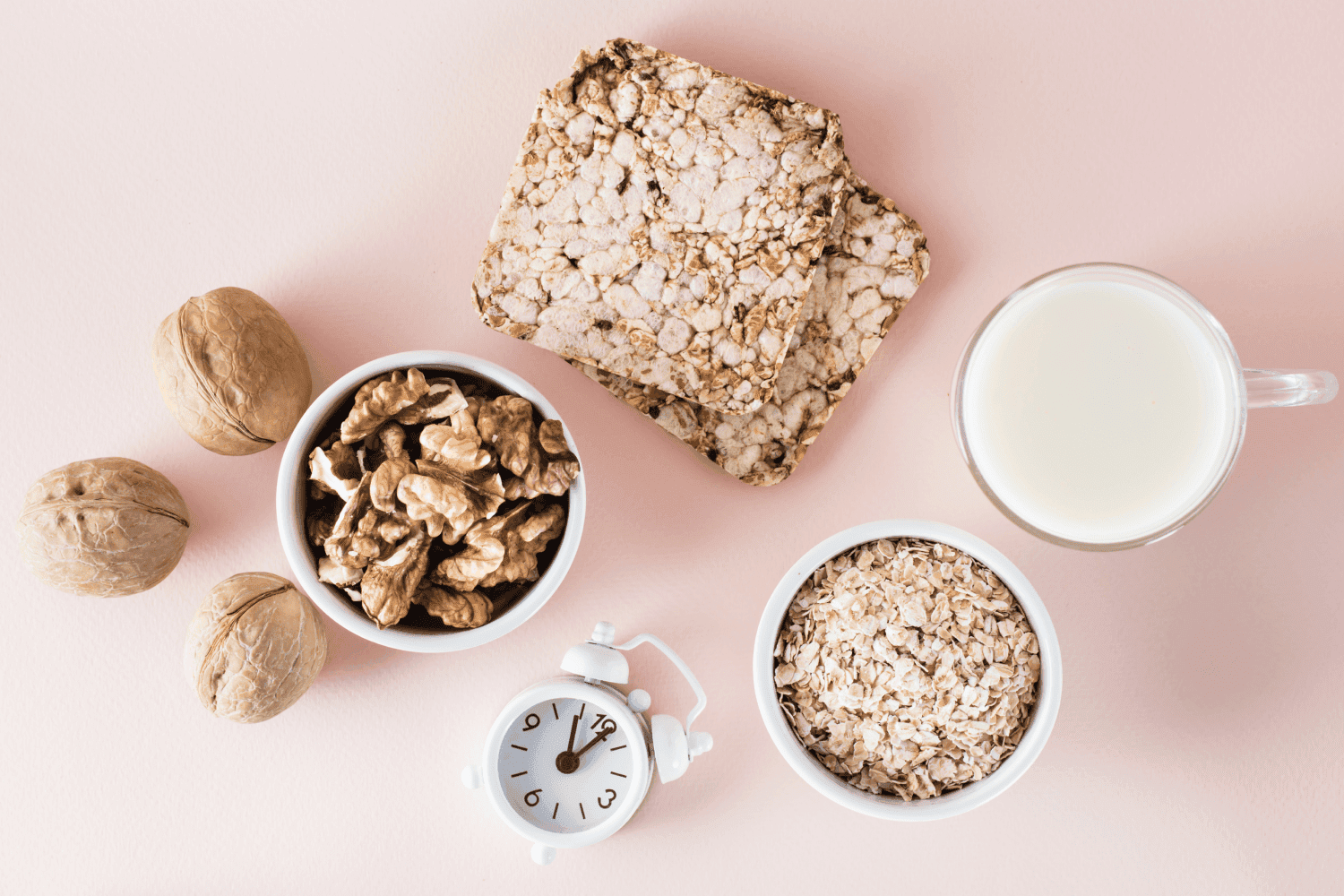
Eat for Better Sleep
by Mia Campbell
Australians haven’t been getting much sleep these days.
Since the beginning of the COVID-19 pandemic, an estimated 70 per cent of Aussies have experienced one or more new sleep challenges. To help people get more shut-eye, health experts have recommended a number of strategies to combat stress-induced insomnia. Many of these recommendations—like setting a regular bedtime and being mindful of screen time— may seem more or less self-explanatory.
However, you may be surprised to learn that the foods you eat could be affecting your sleep. Mounting evidence shows that your diet can have a major impact on your ability to fall and stay in deep, restorative sleep.
Consuming nutritious foods creates the proper chemical environment for your brain to generate the neurotransmitters needed for healthy sleep. A variety of chemicals, amino acids, hormones, and nutrients work together to promote good sleep—including tryptophan, melatonin, calcium, magnesium, and potassium. Avoiding high-sugar, heavily processed foods has also been shown to induce more restful snoozing.
If you want to enhance your quality of sleep—and thereby your overall quality of life—try adding these nutrient-packed foods to your diet:
Almonds
Like several of their fellow nuts, almonds are packed with melatonin—a hormone that helps regulate your internal clock. Almonds also include the mineral magnesium, which has recently gained attention as a possible sleep-enhancer. In addition to naturally relaxing the nerves and muscles, magnesium helps prevent leg and foot cramping—common culprits behind sleep interruptions.
Salmon
Similarly to other fatty fish like anchovies and mackerel, salmon is rich in omega 3 acids and vitamin D. Both omega 3s and vitamin D have been shown to boost your body’s production of the feel-good chemical serotonin. In addition to influencing your mood, serotonin helps regulate when you sleep and wake.
Turkey
Turkey has long been believed to encourage sleepiness. Much of turkey’s sleep-promoting ability is due to its content of the amino acid tryptophan, one of the building blocks of both melatonin and serotonin. In addition, turkey contains protein, which is believed to promote good sleep when consumed in moderation before bed.
Milk
A warm glass of milk before bed is a generations-old tradition believed to promote relaxation, anxiety-relief, and restorative sleep. The tradition holds up: Milk and other dairy products are an excellent source of tryptophan.
Tart Cherries
Along with almonds, cherries are among the few natural food sources of melatonin. Research has found that drinking a glass of cherry juice before bed can combat insomnia and promote quality sleep!
Bananas
Boasting several key nutrients for promoting healthy sleep, bananas might be the ultimate late-night snack. Not only are bananas packed with magnesium, but they support the synthesis of both melatonin and serotonin.
Chamomile tea
An age-old sleep aid, chamomile tea has been used for centuries as a natural remedy for anxiety and insomnia. Its mild sedative effects can be chalked up to an antioxidant called apigenin, which binds to your brain's benzodiazepine receptors in a way that may incite sleepiness and calm.
Spinach
In addition to being rich in magnesium, spinach is high in calcium—another mineral thought to enhance sleep. Directly related to our sleep cycles, calcium can help the brain generate the sleep-regulating hormone melatonin. The calcium in spinach works with magnesium to create a calming effect.
Carbs
The carbs found in foods like potatoes, rice, and bread facilitate the production of tryptophan—especially when paired with protein. When you eat certain tryptophan-containing proteins like turkey, the tryptophan must battle with other amino acids to enter your brain. Consuming carbs triggers the production of insulin, which reduces the amino acids in your blood—except for, conveniently, tryptophan. Put another way, carbs make it easier for tryptophan to reach your brain. Health experts recommend sticking to complex carbohydrates like sweet potatoes, brown rice, and quinoa.
To set yourself up for health and happiness, it’s essential to kick off your day fresh from a healthy night’s sleep. What you eat plays a major role in facilitating deep sleep, helping you feel energised, refreshed, and ready to take on the day. Learn more about other hacks to encourage restful snoozing, like wearing socks or making your bed in the morning!

